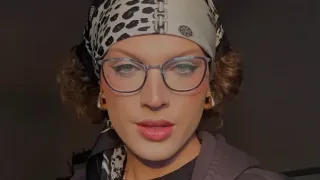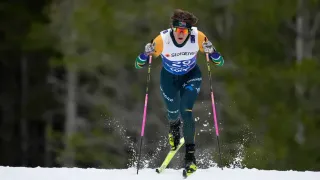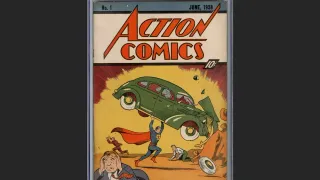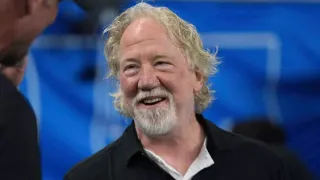January 12, 2014
Furstenberg Wrap Dress Celebrates 40th Anniversary
Matthew Wexler READ TIME: 3 MIN.
JoJo Siwa put her foot down on Mickey Rourke's "homophobic" smack talk on "Celebrity Big Brother." Rourke earned a warning that he could get evicted if he keeps it up.
"The two are currently starring on the U.K. version of the series and an exchange between them on Wednesday night's episode went awry," Variety reported. The trouble started when "72-year-old Rourke asked if 21-year-old Siwa was romantically interested in boys or girls," Variety said.
"Girls," Siwa answered. "My partner is nonbinary."
"If I stay longer than four days," Rourke vowed, "you won't be gay anymore."
Siwa wasn't going to let this pass. "I can guarantee I'll still be gay and I'll still be in a very happy relationship," she fired back.
"The actor and former boxer then made a comment that he was 'going to vote the lesbian out real quick,' which Siwa overheard," Variety continued.
Siwa spoke up once more, telling the "Rumble Fish" actor, "That's homophobic, if that was your reasoning."
Rourke didn't stop there, according to reports. Per Variety: "He also reportedly said 'I need a f–,' referring to the house's smoking section, but then gestured to Siwa and said: 'I'm not talking to you.'"
Enough was finally enough.
"After these remarks, Rourke was pulled into a confessional where Big Brother told him that his language was 'offensive and unacceptable,'" Variety recounted.
UK newspaper the Daily Mail delved into the details of that conversation.
"Mickey before you entered the Big Brother house the rules regarding unacceptable language and behavior were explained to you," the chiding went.
After being reminded of the content of his remarks, the actor was asked, "Mickey, do you understand how this language could be offensive to your Housemates or the viewing public?"
"Yeah I think so," Rourke responded. "If I was saying it in a nasty kind of way or if I truly meant it."
Rourke was informed that "Further language or behavior of this nature could lead to you being removed from the Big Brother house."
An apology from the "Barfly" actor followed in short order.
"I apologize," Variety quoted Rourke saying. "I don't have dishonorable intentions."
"I'm just talking smack, you know," Rourke went on to add. "I wasn't taking it all so serious. I didn't mean any bad intentions and if I did, sorry."
"Rourke later also apologized to Siwa," Variety added, "telling her that he 'didn't say it out of meanness.'"
Fans were vocal in their displeasure with the actor, and with how the situation was addressed, the Mail noted.
But fans also applauded Siwa for standing her ground.
The show airs on British channel ITV. A spokesperson for the channel addressed the situation, saying, "All housemates receive respect and inclusion training and an extensive briefing from the 'Big Brother' senior team to prepare them for living in the house and to set out 'Big Brother's' expectation for appropriate behavior and language."
"Housemates are monitored 24 hours a day and instances of inappropriate behavior are dealt with appropriately and timely," the spokesperson added.
This is not the first time the British version of the show has been rocked by anti-LGBTQ+ rhetoric from a housemate. In October of 2023, during the show's 20th season, housemate Kerry Riches let loose with a homophobic slur that, while edited out of the broadcast episode, went out on the show's live feed, sparking viewer anger and prompting producers to step in. Riches was enraged by a prank played on her by others in the house. She was the fourth contestant evicted during Season 20, with her departure coming about halfway through the season, on Day 24 out of 42.






